CPAP Dry Mouth
How to Prevent and Treat CPAP Dry Mouth?
CPAP dry mouth is one of the most common and bothersome side effects from CPAP use. It can also be a primary reason for you to abandon the CPAP therapy if you don't understand why dry mouth appears in your case.
Understanding what's going on in your mouth when the pressurized air gets inside, is the best way to prevent dry mouth from occurring.
In this page you'll learn:
- The main causes of CPAP dry mouth.
- Best methods to prevent waking up with dry mouth.
- How to improve or treat it's side effects.
Causes of CPAP Dry Mouth
1. Do You Have Snoring or OSA?
A published article in the Journal of Sleep Research1 revealed that the chances of having dry mouth upon awakening was higher in patients with:
- obstructive sleep apnea (OSA) - Patients with OSA have 31.4% higher chances to wake up with dry mouth compared with primary snorers (only 16.4%)
- increased severity of obstructive apnea - the study found out that the prevalence of having dry mouth increased with the severity of OSA (mild - 22.4%, moderate - 34.5%, severe - 40.7%)
- sleeping with mouth open - it was observed the corellation between sleeping with an open mouth and waking up with dry mouth.
Although the article ends with a suggestion of finding methods to sleep with mouth closed, you'll probably learn from your own experience, that closing your mouth during sleep is not always a solution to prevent CPAP dry mouth.
2. CPAP Mask Leaks
Small leaks or small leak spikes for brief periods of time are common in CPAP users, and they are not a big issue. However, a leak rate over 24L/min for an extended period of time, or air leaks from mouth breathing are enough to seriously impact your therapy and also cause severe dry mouth.
When leaks can be a concern?
Unless you are having "large" leaks lasting for 30 minutes or so, you don't need to worry about them as long as your AHI is good and you can feel the therapy is working.
For example, if your AHI runs between 1.8 and 2.0 mostly, you have to quit worrying so much about the leaks. If you can feel or hear a leak, adjust your mask. Sometimes your mouth may feel dry, but not every day.
To monitor your AHI, you have to use special software. Here is an example of how to use ResScan software from ResMed.
You can experience CPAP dry mouth after awakening especially if you use a nasal mask or nasal pillows. This can happen because if you sleep with your mouth open, the air can leak drying your mouth completely.
A full face mask can cover the mouth, too, resolving this leaking issue.
Learn how to stop the frustrating leaks from CPAP masks here.
3. Other Risk Factors for Mouth Leaks
Excessive dry mouth and throat is a common problem not only in patients with CPAP but also in those:
- with oral appliances,
- with other health problems like snoring, bruxism, narcolepsy,
- or in those with nasal congestion - the patient is forced to open his mouth in sleep because his nose is congested and the CPAP airflow cannot get through.
4. The CPAP Air Pressure is Very High
There are plenty of practical ways to prevent the air escaping through your mouth (you'll discover them below), which can successfully prevent CPAP dry mouth. But when all these methods fail in some patients, I remain baffled, with no answers.
I couldn't explain what else is missing, until I found a new article2 published recently, describing how the pressurized air from CPAP can block the salivary glands, preventing the normal flow of saliva.
Does it ring a bell?
Let me explain more clearly.
Dry mouth appears due to the absence of the saliva, resulting in:
- unpleasant sensations,
- bad breath,
- dififculty swallowing,
- the growth of bacteria,
- canker sores and other mucosal wounds due to lacking of antibacterial action of saliva.
As you discovered from the previous study, saliva can be absent if you sleep with your mouth open or when you have a leak from CPAP mask. This is how your saliva evaporates, and the CPAP air accelerates the drying process.
However, there are cases when saliva is absent even when there is no way for saliva to evaporate.
As you probably know, the saliva is produced by the salivary glands, and it flows into the mouth through ducts, at a determined pressure.
If the pressure in your mouth is higher than that of the salivary duct outlet pressure, then the flow of the saliva is blocked.
In most cases, the saliva pressure can reach 5.47 cmH2O.
CPAP air pressure varies according to the results from your sleep study, and it typically ranges from 6 to 14 cmH2O. Bear in mind that CPAP is designed to deliver pressure3 at least 4 to 20 cmH2O.
As the study mentions, if the CPAP pressure is higher than salivary pressure, the flow of saliva will be affected and even blocked completely.
How to Prevent CPAP Dry Mouth
The best solution to prevent or stop CPAP dry mouth is to discover your risk factors (discussed previously) and eliminate them.
1. Stop Sleeping With Your Mouth Open
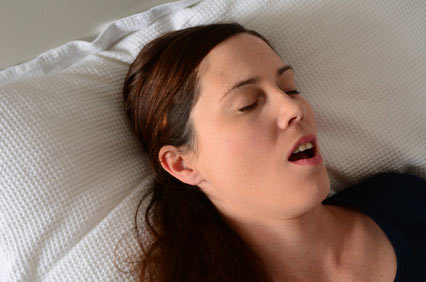
This solution is useful if you have nasal pillows or nasal mask as a way to deliver the pressurized air into your airways.
You'll manage to do this by:
- replacing your nasal mask/pillows with a full face mask.
- using a chin strap and/or a chin strip.
- change your tongue position during sleep.
- taping your mouth
Let's explain each method:
Use a Full Face Mask
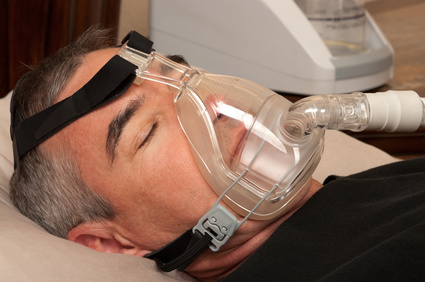
With the full face mask, it doesn't matter if you have mouth leaks, because the air is still contained within the mask.
So, you'll receive adequate CPAP therapy whether you're breathing through your nose or mouth.
Please bear in mind that some patients have CPAP dry mouth issues even if they use the full face mask. This happens because, in this case, the CPAP pressure is higher than the pressure from salivary ducts.
We'll discuss this problem later.
Sleep with a Chin Strap
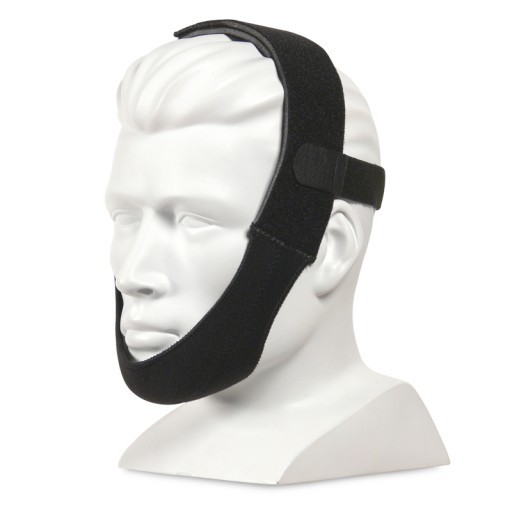
You can use a CPAP chin strap by Respironics to keep your mouth closed during sleep.
For some people merely keeping the jaw "up" seals the mouth by also keeping the tongue up which will maintain an airtight seal inside the mouth.
Alternative method: Try making your own chin strap. Just cut the leg off a pantyhose tights, put your chin in the middle and tie the ends above your head.
For more on chin straps for CPAP users, see CPAP Chin Strap.
Mouth Tapping
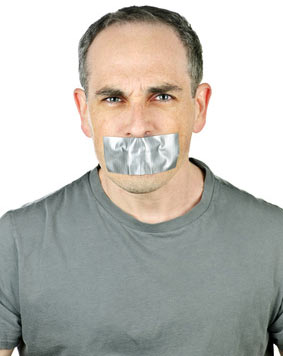
Mouth taping is a tested with success method by hundreds of CPAP users, however, not all doctors recommend this method.
Keeping your mouth shut with tape seems a shock for many of us, but this method works for many patients. However, not every tape is good, and the position of the strips on the mouth needs to be tested.
Here is a useful method for mouth taping:
- Best tape to use: Nexcare Gentle Paper Tape (3M Micropore Surgical Tape) 2-inches wide.
- Wash thoroughly and dry your face.
- Apply chapstick to lips (to make sure nothing sticks to them).
- Roll under about 1/16 inch of tape end to form a tab for easy/quick removal of tape in the morning - no worries about choking or suffocating at all.
- Cut a length of tape to cover lips plus about 3/4 inch on each side of lips.
- Turn lips slightly inwards (opposite of puckering) and center and apply tape horizontally across lips. This way when you lay down and gravity does its thing, you don't end up with lip flutters or being able to open your mouth a bit.
This video explains how to mouth tape when you use the CPAP machine:
The video recommends using Snorless Strips for taping your mouth.
Is Mouth Taping Dangerous?
Although nobody complained yet, is good to know that if you have other conditions, such as asthma, or acid reflux, you can obstruct your airway in sleep.
This method should be your last choice, so please explore other options instead of attempting this practice.
Bottom line... If if you're prone to vomiting in your sleep, don't tape.
Some CPAP users control their mouth leaks without resorting to drastic measures like taping the lips together. They use4 a Chin-Up Strip combined with chin strap, to prevent having puffy cheeks (from the air that fills the closed mouth).
Change your tongue position
According to the 2017 study2, the best way to normalize the flow of the saliva in your mouth is to close the opening between the oral cavity and pharynx, where the pressure is increased for the CPAP air.
In theory, the article mentions that you could close that opening by touching with your tongue the pillars. In practice, it's difficult during sleep to maintain the tongue in that position.
You could try to learn to keep your tongue pressed to the roof of the mouth (during the day).
Or you could make an effort before falling asleep to seal your lips and create a small suction inside your mouth and push your tongue forward against your teeth and up to the roof of your mouth. The suction should hold your tongue there.
Some people found the method more effective if they parked their tongue behind the lower gum line. This can be easier for you, so try this too.
Tip: You can use a chin strap to increase the effectiveness of mouth sealing. The chin strap will keep your jaw up.
2. Lower The CPAP Air Pressure
If you fixed your mask leaks, and you stopped opening your mouth during sleep, but you still wake up with dry mouth in the morning, then you don't have any other solution than to lower your CPAP air pressure.
Actually, many readers of this website have CPAP dry mouth and high air pressure.
There are different reasons for why you have a higher pressure than necessary.
Maybe your sleep doctor wanted to be sure your airways will remain open while you sleep, or the results from your sleep study are a bit exaggerated. Or, maybe you lost some weight since starting CPAP therapy, and now you need the pressure adjusted.
What can you do in this case?
- try a second sleep study - not everyone can afford this, but if you can, try another sleep study mentioning to the sleep technician that you need a lower air pressure. In other words, you have to find out what is the lowest pressure your body needs to sleep without apnea episodes.
- ask your doctor to lower your CPAP pressure - he may reduce it by increments, to test the quality of your sleep the following night.
- adjust CPAP pressure by yourself - if you don't have access to a doctor, you may want to try to lower the pressure by yourself. Before doing this, you need to know how to track your sleep to check if you have apnea episodes or hypopneas. Use your CPAP software or a portable pulse oximeter to reveal your sleep quality.
3. Stop CPAP Mask Leaks
Another way to prevent CPAP dry mouth is to stop your CPAP mask leaks.
I dedicated a whole article on how to fix the CPAP mask leak problems here.
I also answered to a visitor to his question "How to Stop CPAP Air Leaks Through My Lips here".
Improve Side Effects from CPAP Dry Mouth
While you're experimenting with the different methods to prevent dry mouth, you can improve and treat the unpleasant sensations.
The most helpful solutions to improve your dry mouth side effects are:
- use heated humidification
- drink water
- take medication
1. Use Heated Humidifcation

Heated humidification is very important to prevent CPAP dry mouth.
Sleep doctors believe that everyone should benefit from heated humidification, especially those with mid to high range pressures. I hope you are using your humidifier, and remember, it's the moisture you want, not necessarily the heat.
Some patients with successful CPAP treatment, keep their heat settings only on 2, even on their high pressure.
Humidity seems to be a very personal thing but maybe try turning it down a few notches and see what happens.
2. Drink Sips of Water During The Night
Keeping a glass of water by the bedside is another good idea. It's a good practice to take a few sips of water in the middle of the night, perhaps even to have a small cup ready next to your bed to avoid having to get up.
It's better if you avoid drinking large amounts of water. It may disturb your sleep from bladder tension. If you do wake in the night with even a mild sense of bladder distension, it's better to get up and void.
Attempts to go back to sleep with bladder distension are likely to fail or will result in repeated arousals.
3. The Best 2 Medications for Dry Mouth
The following products are the most commonly used by those who suffer from CPAP dry mouth:
- XyliMelts - widely used successfully by CPAP users.
- Biotene Oral Balance Moisturizing Gel - put some gel in your mouth, enough to cover and coat the mouth very well.
Biotene also has many products for dry mouth, including mouth sprays, but the gel is the most effective.
Summary:
Having CPAP dry mouth means you are blowing air through your mouth, or you have a very high air pressure from your CPAP.
A relatively leak free and a relatively low but efficient CPAP air pressure is the key to successful CPAP compliance, without having dry mouth problems.
I believe that the highly compressed air pressure is the most common cause for CPAP dry mouth. Just make sure that before you adjust the pressure, you'll discuss with your doctor.
Last Update: 24/06/2018
References:
1. The Cause of Dry Mouth During CPAP Application - Mauro Bortolotti, MD (J Clin Sleep Med. 2017 Apr 15)
2. Dry mouth upon awakening in obstructive sleep apnea - Oksenberg A1, Froom P, Melamed S. (J Sleep Res. 2006 Sep;15)
3. https://www.tuck.com/cpap-machine-reviews/
4. http://www.cpaptalk.com/viewtopic.php?t=9653
Sleep Apnea › CPAP Machine › CPAP Dry Mouth
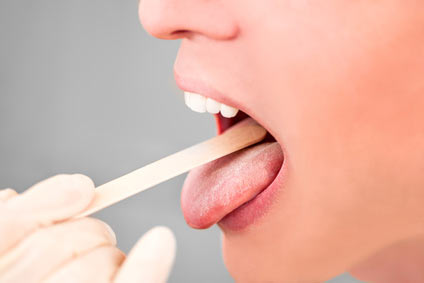








New! Comments
Have your say about what you just read! Leave me a comment in the box below.